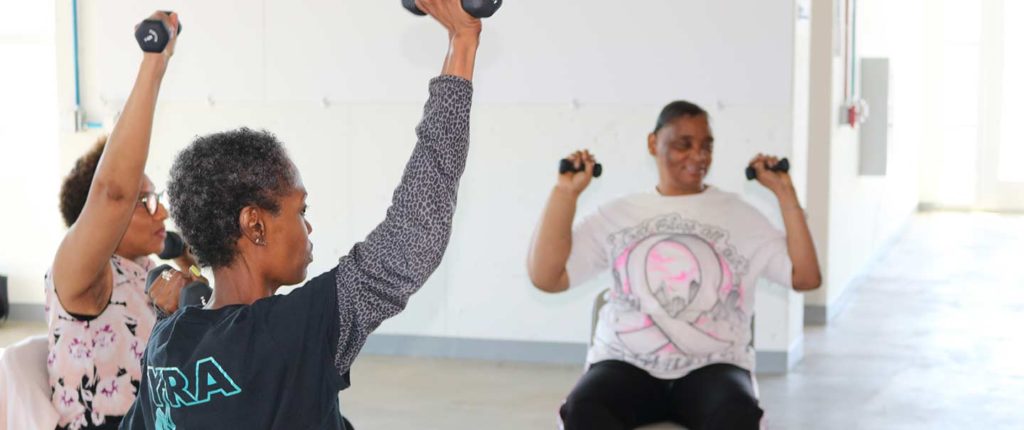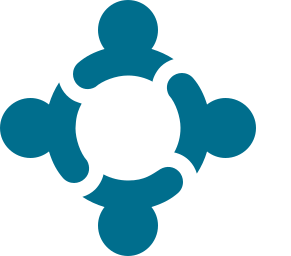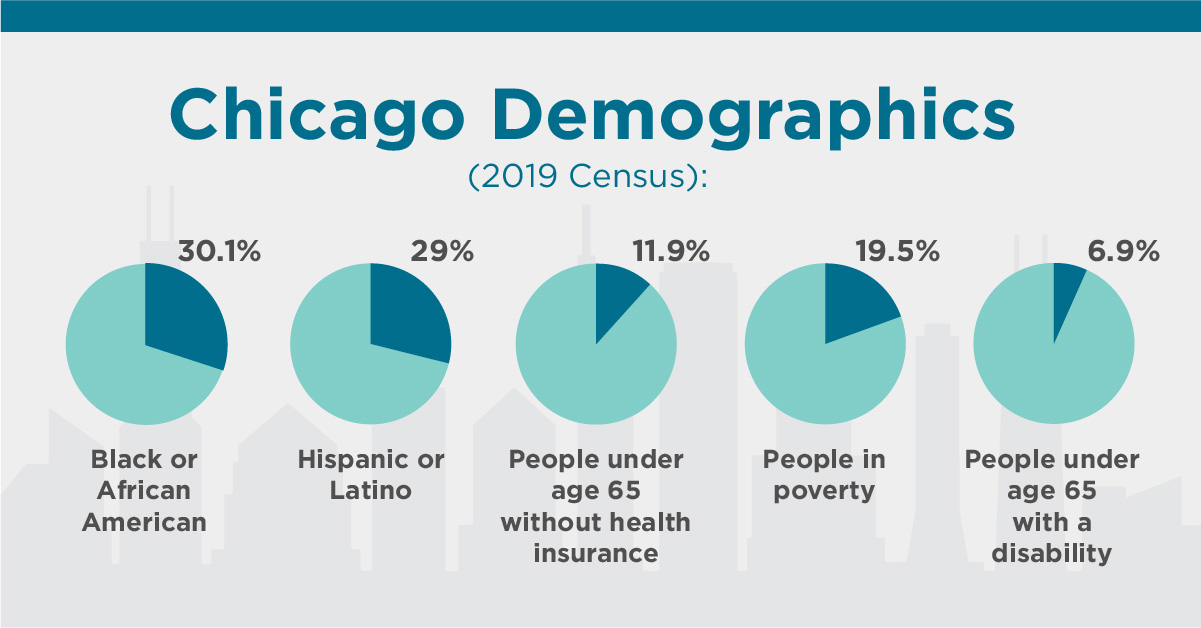
Cancer can affect anyone, regardless of age, race, income, and other factors. Yet it is a reality that certain groups of people experience higher rates of cancer and more deaths after diagnosis compared to others.
The University of Illinois Cancer Center is committed to creating health equity by addressing cancer disparities in our communities.
We provide resources and education to help people understand and address their cancer risk and receive needed cancer screenings. For those with a cancer diagnosis, we assist with treatment navigation, opportunities to participate in clinical trials, and programs that support their survivorship journey.
The diversity of our patients improves scientific understanding of how biology and societal factors contribute to an unequal cancer burden. Our researchers are unlocking the mysteries of cancer by integrating genetics, cellular science, and public health information to identify factors that influence the frequency and severity of disease.
Cancer Disparities in Chicago
- In 2018, only about 53% of Hispanic or Latino Chicagoans were screened for colorectal cancer per guidelines compared to 74% of white Chicagoans.
- From 2012 to 2016, the age-adjusted rate (a way to make fairer comparisons between groups with different age distributions) of prostate cancer new cases per 100,000 Black Chicagoans was 175.8 compared to 99.3 for white Chicagoans.
- In 2017, the age-adjusted rate of all cancer-related deaths per 100,000 population was 207.4 for Chicagoans in high economic hardship compared to 153.8 for Chicagoans in low economic hardship.
Sources: Chicago Health Atlas; Centers for Disease Control and Prevention
Making a Difference in the Community

Cancer disparities exist in part because lack of healthcare access and awareness. The University of Illinois Cancer Center, alongside partners Mile Square and UI Health, helps direct resources to historically underserved communities in Chicago.
Using community-informed and engaged research, the Cancer Center improves patient outcomes through community health navigation programs that provide education, spread awareness and increase healthcare access through:
- Screenings for breast, colorectal, cervical, and lung cancers — regardless of ability to pay
- Follow-up care and support services, such as exercise programs and support groups
- Smoking cessation programs
- Community events
- Town halls
- Think tanks
- Culturally competent health education materials
- Multi-media health communications
- Connections to cancer care and primary care
How does University of Illinois Cancer Center respond to the needs of individual underserved communities in Chicago?
Chicago is a diverse population, which may increase the burden of cancer in many communities due to a number of factors.

Whether in the context of race, income, disability, or access to healthcare, Chicagoans face health inequities that University of Illinois Cancer center is dedicated to reducing.
At the Cancer Center our research helps us determine the needs of our communities in order to design programs to meet those needs. Community-based events and initiatives exist in the communities where the burden of cancer is highest, such as:
- Services offered by Mile Square Health Center — which provides care regardless of ability to pay — in historically underserved communities, including Back of the Yards, Cicero, Englewood, Humboldt Park, South Shore, and Rockford.
- Health Systems Intervention Programs, which increased breast cancer screening rates in the Back of the Yards neighborhood from 60.5% in 2018 to 71.4% in 2019.
- Mile Square Accessible Mammogram Outreach and Engagement (Mi-MAMO), which provided breast cancer screenings to 945 community members in 2019 alone, including the 62% who were uninsured.
- Colorectal screening programs, such as Mi-CARE II and UI CAAN, which distributed 299 fecal immunochemical tests to community members in Englewood, South Shore, and Back of the Yards — and had a test return rate of 71.6%
Additionally, University of Illinois Cancer Center recognizes the value of diversity in healthcare. Our researchers, clinicians, and staff members reflect the diversity of the individuals they serve, helping them to provide the best possible care to our patient population.
For patients who are skeptical of the healthcare system, why should they still seek care at University of Illinois Cancer Center?
Our community-centric approach to engagement informs our approach to both research and care. The multiple contact points we have with community members increase their ability to not only receive care, but also become an active participant in their own health.
Through community outreach and engagement, we work to understand and mitigate the structural factors that impact health outcomes. We pride ourselves on creating spaces in our communities where people can receive quality healthcare from providers who are compassionate and understanding of the issues they face each day.
By providing easy access to information, education, and services that are culturally-tailored to our own communities, community members can be comfortable and confident in the hands of the Cancer Center.
Introducing the Data Hub for Communities
The University of Illinois Cancer Center’s Data Hub for Communities is an interactive platform that allows you to explore and visualize data about the burden of cancer and its risk factors across multiple geographic levels within Illinois. Data are available to download as charts, maps, tables, and more. Explore the Data HubTake Action at the Cancer Center
Contact Us
To learn more about how University of Illinois Cancer Center addresses cancer disparities, contact us at [email protected].

